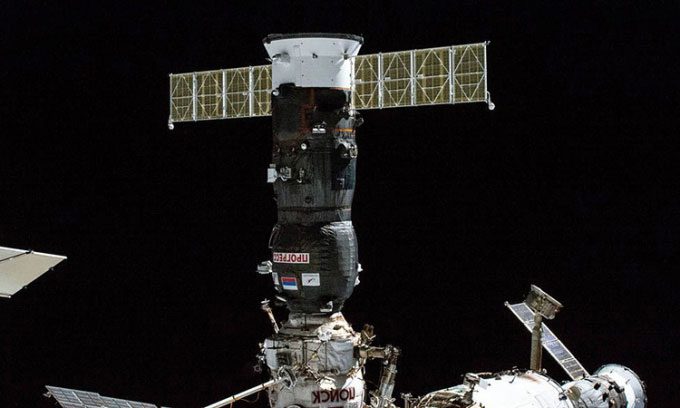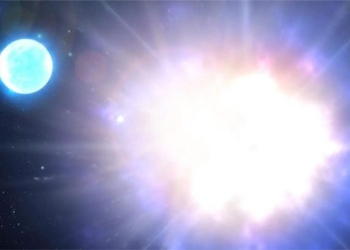Once again, a Russian spacecraft docked at the International Space Station (ISS) is experiencing a coolant leak.
The Russian space agency Roscosmos reported the leak on February 11 after mission control in Moscow noticed a “pressure drop” in the cooling system of the Progress 82 cargo ship.
“The cause of the coolant loss in the spacecraft is under investigation. The hatches between Progress 82 and the ISS are all open. The temperature and pressure in the International Space Station are normal. The crew is not in danger and continues normal operations,” NASA stated in a blog post.

Russian cargo ship Progress 82 docked with the Poisk module on the ISS. (Photo: NASA).
The Progress 82 spacecraft, carrying three tons of food, fuel, and supplies, arrived at the ISS on October 28, 2022, and is scheduled to depart on February 17, 2023. It is unclear whether the spacecraft will still leave on that date, or if mission control will keep it at the ISS longer than originally planned to continue investigating the leak (Progress cargo ships are designed to burn up in the Earth’s atmosphere at the end of their missions, so engineers won’t be able to examine them on the ground).
Coincidentally, the pressure drop in the cooling system of Progress 82 was noted on the same day that another Russian cargo ship, Progress 83, arrived at the International Space Station. Progress 83 was launched on February 9 and successfully docked with the ISS on February 11. It was not affected by the incident with Progress 82.
The coolant leak from Progress 82 occurs just two months after a similar incident involving the MS-22 Soyuz spacecraft from Russia, which transported three astronauts to the ISS in September 2022 and was initially scheduled to bring them home in March 2023.
However, Soyuz MS-22 experienced a complete coolant leak on December 14, 2022, with the cause identified as a collision with a small meteorite. This vehicle is currently no longer safe to carry astronauts, and Roscosmos plans to launch another Soyuz spacecraft later this month to replace it. The replacement Soyuz, called MS-23, will return the MS-22 crew to Earth, potentially by the end of September 2023.





















































